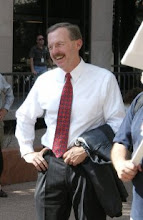 Al-Qaeda Chief Contained but Elusive
Al-Qaeda Chief Contained but ElusiveBy David Blair in London
Published: December 27 2009 16:26 | Last updated: December 27 2009 20:13
As the US air force made entire mountains shake with the impact of “daisy-cutter” bombs weighing 7.5 tonnes, Osama bin Laden prepared for death.
On a frozen range of peaks, known as Tora Bora, he was driven to compose his will. “Allah bears witness that love of jihad and death in the cause of Allah has dominated my life,” wrote Mr bin Laden, according to an investigation last month by the Senate foreign relations committee before instructing his wives never to remarry and apologising to his children for having devoted everything to the struggle against “the pagans”.
That was December 14 2001, and the world’s most wanted man, the mastermind of the bloodiest terrorist attacks in history only three months earlier, had reached his nadir. In just a few weeks, the US onslaught in Afghanistan had toppled the Taliban regime, destroyed Mr bin Laden’s network of terrorist training camps and forced him to flee, in mid-winter, to this last redoubt on the frontier with Pakistan.
For a few tantalising days, Mr bin Laden was all but within America’s grasp. Yet in spite of their fury, the air strikes on Tora Bora were a sign, most analysts concur that US commanders had made a critical error. They had chosen to leave the task of finishing off Mr bin Laden to the air force, a few teams of US special forces soldiers, less than 100 strong, and a motley collection of about 2,000 Afghan militiamen.
On December 16, Mr bin Laden escaped over the border into the tribal areas of Pakistan. The trail went cold and, in spite of rumours and unsubstantiated reports, it has essentially remained so ever since.
The Senate committee report which disclosed that Mr bin Laden had written his will concluded that the swift deployment of 3,000 US troops could have prevented his escape, thus avoiding much of the subsequent bloodshed in both Afghanistan and Pakistan.
“The decisions that opened the door for his escape to Pakistan allowed bin Laden to emerge as a potent symbolic figure,” said the report. “The failure to finish the job represents a lost opportunity that forever altered the course of the conflict in Afghanistan and the future of international terrorism.”
So it was that Mr bin Laden, now 52, has retained his status as the world’s most wanted man. His supporters have been able to release at least 24 authenticated taped messages from him since the September 2001 attacks. The most brazen emerged shortly before polling day in the US presidential election in 2004, when Mr bin Laden apparently tried to alter the outcome by urging Americans to reject George W. Bush.
Expert opinion is divided over whether Mr bin Laden’s survival is still crucial. David Livingstone, from the security programme at London’s Chatham House think-tank believed killing him could be counter-productive.
“If you capture or execute him, you turn him into a martyr and al-Qaeda will continue because it has become a brand name. If you keep him alive, you don’t allow him to become a martyr. The aim, as a least worst option, has to be to contain him,” said Mr Livingstone.
The signs are that Mr bin Laden has been contained. One indicator is the dwindling flow of messages. This year, Mr bin Laden managed only four audiotapes – whereas seven emerged in 2007. Not a single videotape of him has appeared since 2004.
But even if Mr bin Laden has been reduced to doing nothing but hide, he remains of immense significance, according to Peter Bergen, an expert on terrorism who interviewed the al-Qaeda leader in 1997. “Al-Qaeda is bin Laden’s idea, it is his baby and 9/11 was his operation and it would psychologically be a victory for the civilised world if he was killed or captured.”
Mr Bergen added: “People make a difference. If von Stauffenberg had killed Hitler on July 20 1944, then world war two would have ended a year earlier.”
Moreover, constant attacks by US drones in the tribal areas of Pakistan have eliminated a raft of al-Qaeda’s core leaders. Mr bin Laden is no longer surrounded by possible successors. “There is nobody who could replace him as the head of this network,” said Mr Bergen.
General Stanley McChrystal, the US commander in Afghanistan, clearly agreed. Mr bin Laden’s very survival “emboldens al-Qaeda”, he told the Senate, adding: “I don’t think that we can finally defeat al-Qaeda until he is captured or killed.”
But first America will have to find him – and there is no hard information about his whereabouts, beyond a strong probability that he is somewhere along the Pakistan-Afghanistan border.
Pakistan’s prime minister recently alleged that Mr bin Laden was in Afghanistan but these claims were routinely made by Pakistani leaders anxious to avoid responsibility for capturing al-Qaeda’s leader.
Simply by remaining a permanent if spectral presence for the last decade, Mr bin Laden can claim a victory of sorts.




No comments:
Post a Comment